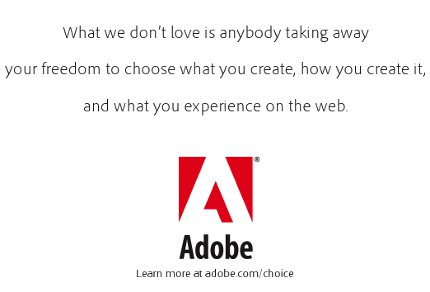In an unsurprising turn of events, Adobe's CTO had a few words to say about recent reports demonstrating that the company's Flash plug-in greatly reduced the battery life of the latest MacBook Air.
During an interview with Fast Company, Kevin Lynch shot back at the criticisms, saying that "it's a false argument to make, of the power usage. When you're displaying content, any technology will use more power to display, versus not displaying content. If you used HTML5, for example, to display advertisements, that would use as much or more processing power than what Flash uses".
The CTO even pointed to independent studies showing that Flash was, at least in Windows, more efficient than HTML5 when it came to video-playback.

The matter could have ended there, but Lynch couldn't resist having a dig at Apple, blaming the company for spurring the negative feelings that many have towards the plug-in. He continued "I just think there's this negative campaigning going on, and, for whatever reason, Apple is really choosing to incite it, and condone it".
He then returned to toeing the company line by condemning Apple's closed approach that limits user's access to Flash content. "We don't think it's good for the web to have aspects closed off--a blockade of certain types of expression," he continued, adding that, "there's a decade of content out there that you just can't view on Apple's device, and I think that's not only hurtful to Adobe, but hurtful to everyone that created that content. That's what upsets me the most".
This spat clearly won't be ending anytime soon, but Lynch remained upbeat over Adobe's chances even as the industry support increasingly starts to shift towards HTML5. He concluded by saying that "it's a great opportunity for us. Flash and HTML have co-existed, and they're going to continue to co-exist."
With so few web adverts currently built around HTML5, there's no real way to test Lynch's claims with regards to every day usage to any degree of certainty. The only thing that we can say is that it looks like Apple and Adobe will keep firing shots across each other's bows for the foreseeable future.













